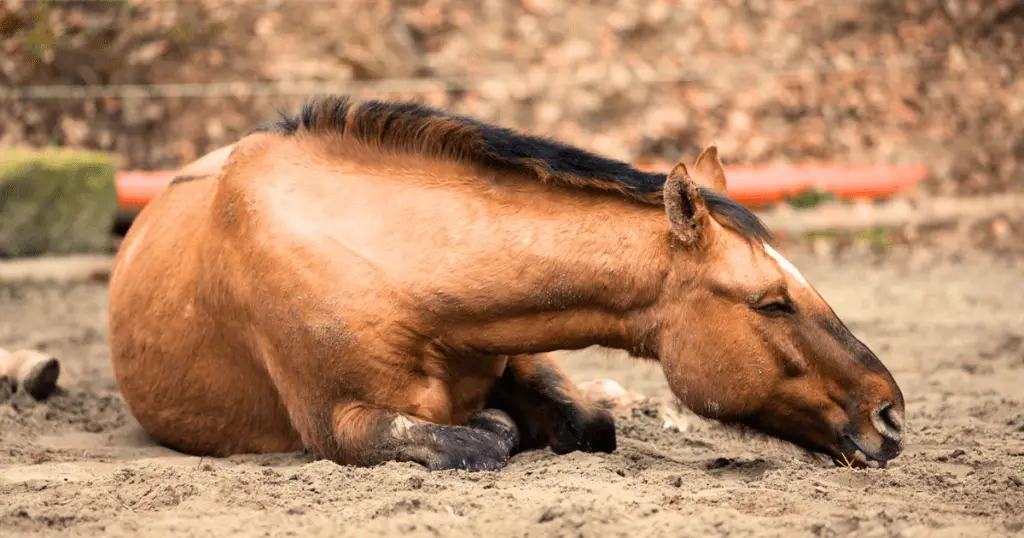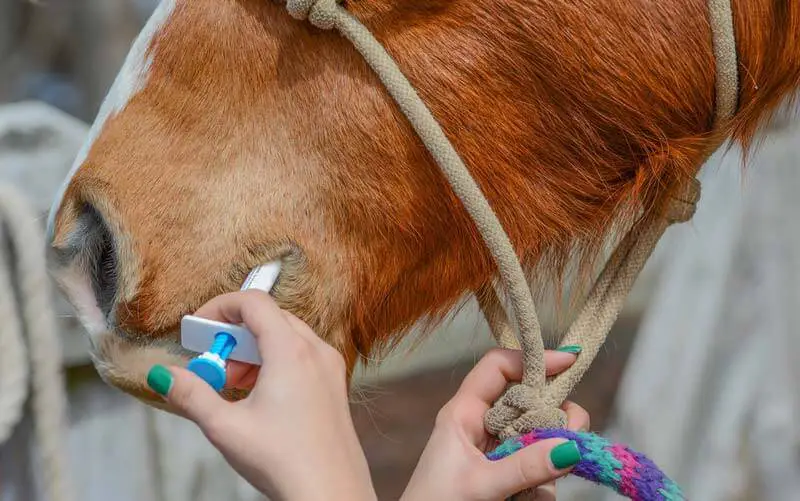As a horse lover, it’s essential to understand the causes, treatment, and prevention of colic in horses. Colic is a broad term used to describe any form of abdominal discomfort, pain, or digestive upset in horses. It’s a common health issue that can affect horses of all breeds, ages, and sizes, and can range from mild to severe cases. It is the number 1 cause of death in horses

What is Colic In Horses? Causes, Symptoms and Treatment Of Colic.
What Causes Colic in Horses
There are many reasons why horses get colic. The most common causes include:
- Inadequate Diet or change in diet: Horses require a balanced diet that meets their nutritional needs. If they are not fed enough hay, or if their diet is not balanced, they may develop colic. As well as sudden changes in diet can cause the gut bacteria to react by producing too much gas.
- Lack of Water: Horses need plenty of clean water to stay hydrated. If they don’t have access to enough water, they may become dehydrated, which can lead to colic.
- Parasites: Internal parasites can cause damage to the horse’s digestive system, leading to colic.
- Stress: Horses are sensitive animals, and any changes in their routine, environment, or management can cause stress, leading to colic.
- Sand Ingestion: Horses that graze in sandy pastures may accidentally ingest sand, which can accumulate in the gut and cause colic.
What are the signs of Colic In Horses?
In horses colic symptoms can vary depending on the severity of the condition, but some common signs include:
- Restlessness and discomfort
- Kicking at the belly
- Pawing the ground
- Rolling or lying down excessively
- Refusal to eat or drink
- Lack of manure production or diarrhea
- Sweating or increased heart rate
How To Treat Colic In Horses?
In horses If you suspect that your horse has colic, you should contact your veterinarian immediately. While you wait for the vet to arrive, there are some steps you can take to help relieve the horse’s discomfort.
- Remove food: Remove all food, including hay and grain, from the horse’s reach.
- Prevent your horse from rolling if they are wanting to. Some horses may twist their bowel if allowed to roll. Obviously keep yourself safe and don’t put yourself near a horse that is violently wanting to roll.
- Walk: Walking your horse can help distract your horse from the pain and encourage bowel movements. But don’t walk continually for long periods of time as it will tire your horse out. It may distract them from wanting to roll also.
- Offer water: Provide plenty of clean water, but do not force the horse to drink.
- Monitor: Keep an eye on your horse’s condition and behavior, and report any changes to your vet.
Video: Let’s Discuss Colic In Horses, Causes, Symptoms and treatment of Colic.
When to Call the Vet
Colic is a medical emergency, and you should always contact your veterinarian if you suspect that your horse has colic. The vet can perform a physical examination and take appropriate measures to relieve the horse’s pain and discomfort.
Conclusion
In conclusion, colic is a common health issue in horses, but it can be prevented and treated with proper care and attention to your horse’s diet, hydration, and stress levels. As a responsible horse owner, it’s your duty to recognize the signs of colic and take immediate action to ensure your horse’s health and well-being. Remember, when in doubt, always call your vet!



